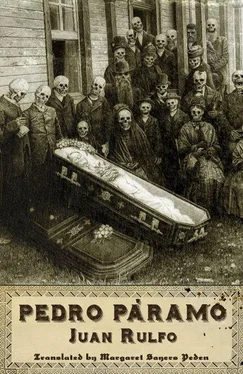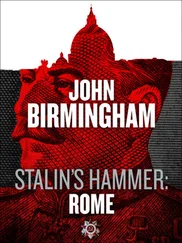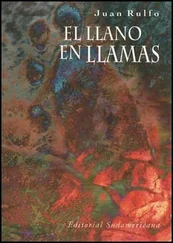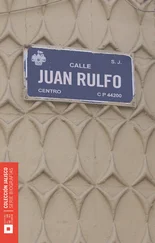You’re lucky, son. Very lucky,” Eduviges Dyada told me.
It was very late by now. The lamp in the corner was beginning to grow dim; it flickered and went out.
I sensed that the woman rose, and I supposed she was leaving to get another lamp. I listened to her receding footsteps. I sat there, waiting.
After a while, when I realized that she was not coming back, I got up, too. I inched my way forward, groping in the darkness, until I reached my room. I lay down on the floor to wait for sleep to come.
I slept fitfully.
It was during one of those intervals that I heard the cry. It was a drawn-out cry, like the howl of a drunk. “Ay-y-y-y, life! I am too good for you!”
I sat bolt upright because it had sounded almost in my ear. It could have been in the street, but I had heard it here, sticking to the walls of my room. When I awoke, everything was silent: nothing but the sound of moths working and the murmur of silence.
No, there was no way to judge the depth of the silence that followed that scream. It was as if the earth existed in a vacuum. No sound: not even of my breathing or the beating of my heart.
As if the very sound of consciousness had been stilled. And just when the pause ended and I was regaining my calm, the cry was repeated; I heard it for a long, long while. “You owe me something, even if it’s nothing more than a hanged man’s right to a last word.”
Then the door was flung open.
“Is that you, dona Eduviges?” I called. “What’s going on? Were you afraid?
“My name isn’t Eduviges. I am Damiana. I heard you were here and I’ve come to see you. I want you to come sleep at my house. You’ll be able to get rest there.”
“Damiana Cisnero”? Aren’t you one of the women who lived at the Media Luna?”
“I do live there. That’s why it took me so long to get here.”
“My mother told me about a woman named Damiana who looked after me when I was born. Was that you?”
“Yes. I’m the one. I’ve known you since you first opened your eyes.”
“I’ll be glad to come. I can’t get any rest here because of the yelling. Didn’t you hear it? How they were murdering someone? Didn’t you hear it just now?”
“It may be some echo trapped in here. A long time ago they hanged Toribio Aldrete in this room. Then they locked the door and left him to turn to leather. So he would never find rest. I don’t know how you got in, when there isn’t any key to open this door.”
“It was dona Eduviges who opened it. She told me it was the only room she had available.”
“Eduviges Dyada?”
“Yes, she was the one.”
“Poor Eduviges. That must mean she’s still wandering like a lost soul.”
Fulgor Sedano, fifty-four years of age, bachelor, administrator by profession and skilled in filing and prosecuting lawsuits, by the power invested in me and by my own authority, do claim and allege the following… ” That was what he had written when he filed the complaint against deeds committed by Toribio Aldrete. And he had ended: “The charge is falsifying boundaries.”
“There’s no one can call you less than a man, don Fulgor. I know you can hold your own.
And not because of the power behind you, but on your own account.”
He remembered. That was the first thing Aldrete had told him after they began drinking together, reputedly to celebrate the complaint:
“We’ll wipe our asses with this paper, you and I, don Fulgor, because that’s all it’s good for. You know that. In other words, as far as you’re concerned, you’ve done your part and cleared the air. Because you had me worried, which anyone might be. But now I know what it’s all about, it makes me laugh. Falsify boundaries? Me? If he’s that stupid, your patron should be red in the face.”
He remembered. They had been at Eduviges’s place. He had even asked her:
“Say, Viges. Can you let me have the corner room?”
“Whatever rooms you want, don Fulgor. If you want, take them all. Are your men going to spend the night?”
“No, I just need one. Don’t worry about us, go on to bed. Just leave us the key.”
“Well, like I told you, don Fulgor,” Toribio Aldrete had said. “There’s no one can doubt your manhood, but I’m fuckin’ well fed up with that shit-ass son of your patron.”
He remembered. It was the last thing he heard with all his wits about him. Later, he had acted like a coward, yelling, “Power behind me, you say? ‘Is it right?”
He used the butt of his whip to knock at Pedro Paramo’s door. He thought of the first time he had done that, two weeks earlier. He waited, as he had that first time. And again as he had then, he examined the black bow hanging above the door. But he did not comment again: “Well, how about that! They’ve hung one over the other. The first one’s faded now, but the new one shines like silk, even though you can see it’s just something they’ve dyed.”
That first time he had waited so long that he’d begun to think maybe no one was home.
He was just leaving when Pedro Paramo finally appeared.
“Come in, my friend.”
It was the second time they had met. The first time only he had been aware of the meeting because it was right after little Pedro was born. And this time. You might almost say it was the first time. And here he was being treated like an equal. How about that! Fulgor followed with long strides, slapping his whip against his leg. He’ll soon learn that I’m the man who knows what’s what. He’ll learn. And know why I’ve come.
“Sit down, Fulgor. We can speak at our ease here.”
They were in the horse corral. Pedro Paramo made himself comfortable on a feed trough, and waited.
“Don’t you want to sit down?”
“I prefer to stand, Pedro.”
“As you like. But don’t forget the don.”
Who did the boy think he was to speak to him like that? Not even his father, don Lucas Paramo, had dared do that. So the very first thing, this kid, who had never stepped foot on the Media Luna or done a lick of work, was talking to him as if he were a hired hand. How about that!
“So, what shape is this operation in?”
Sedano felt this was his opportunity. “Now it’s my turn,” he thought.
“Not so good. There’s nothing left. We’ve sold off the last head of cattle.”
He began taking out papers to show Pedro Paramo how much he owed. And he was just ready to say, “We owe such and such,” when he heard the boy ask:
“Who do we owe it to? I’m not interested in how much, just who to.”
Fulgor ran down the list of names. And ended: “There’s nowhere to get the money to pay. That’s the crux of the problem.”
“Why not?”
“Because your family ate it all up. They borrowed and borrowed without ever returning any of it. One day you have to pay the piper. I always used to say, ‘One of these days they’re going to have everything there is.’ Well, that’s what happened. Now, I know someone who might be interested in buying the land. They’ll pay a good price. It will cover your outstanding debts, with a little left over. Though not very much.”
“That ‘someone’ wouldn’t be you?”
“What makes you think it’s me?”
“I’m suspicious of my own shadow. Tomorrow morning we’ll begin to set our affairs in order. We’ll begin with the Preciado women. You say it’s them we owe the most?”
“Yes. And them we’ve paid the least. Your father always left the Preciados to the last. I understand that one of the girls, Matilde, went to live in the city. I don’t know whether it was Guadalajara or Colima. And that Lola, that is, dona Dolores, has been left in charge of everything. You know, of don Enmedio’s ranch. She’s the one we have to pay.”
Читать дальше












